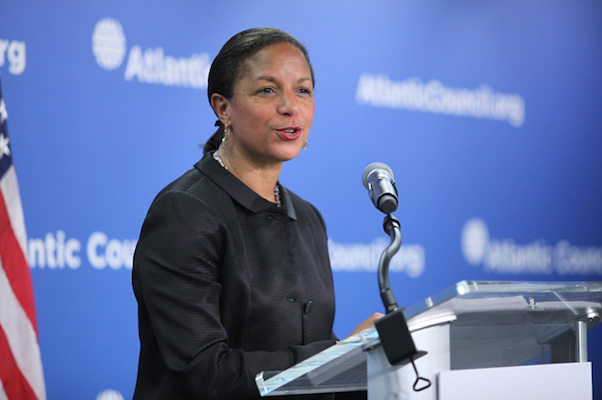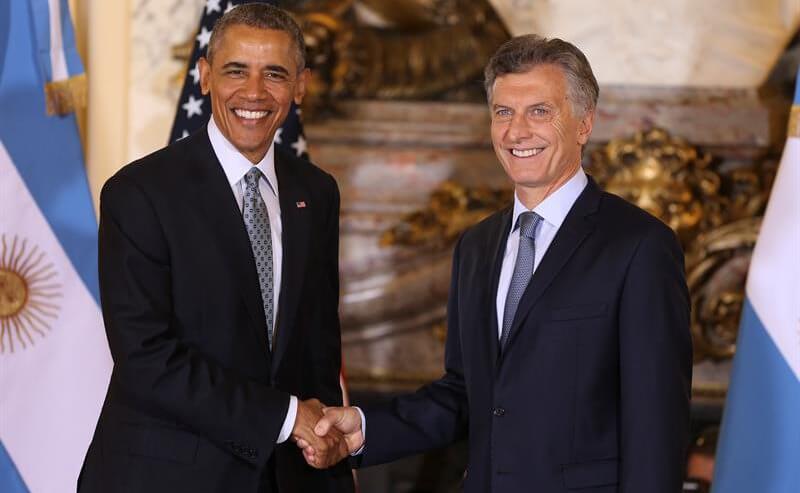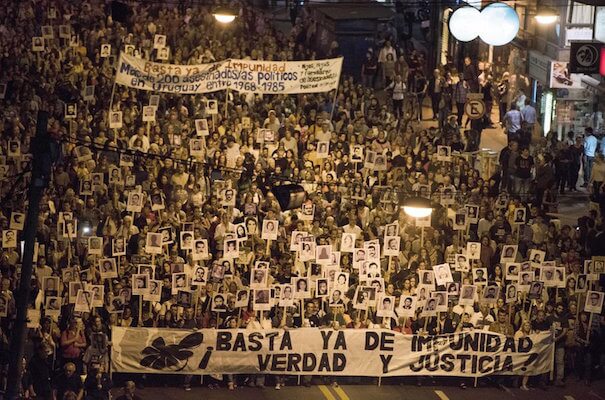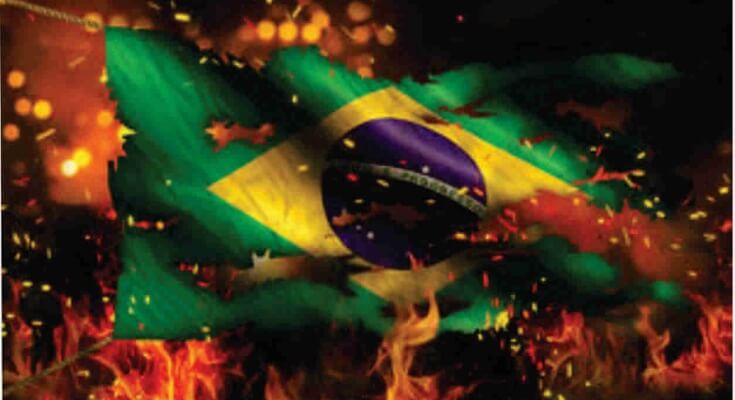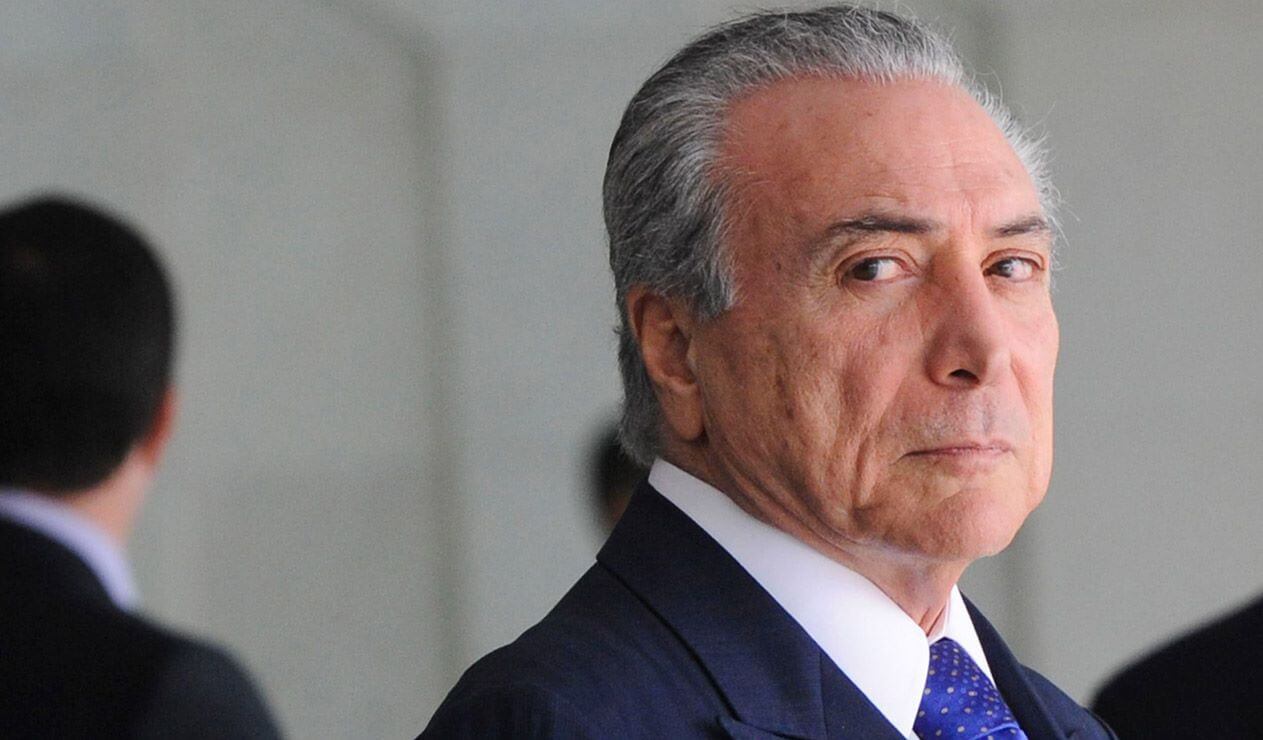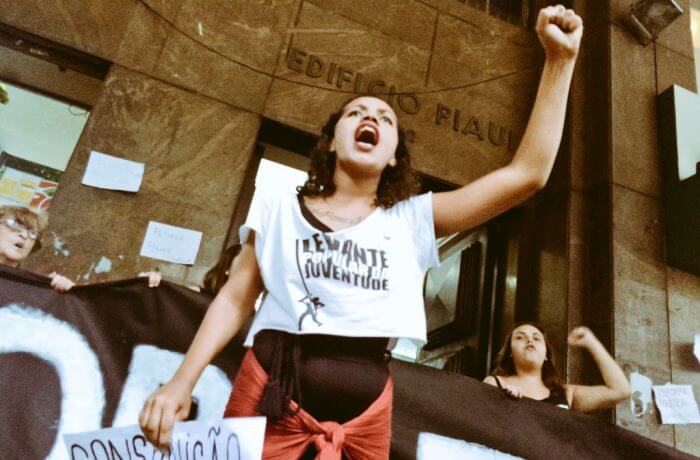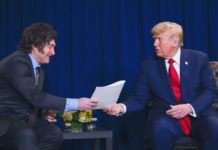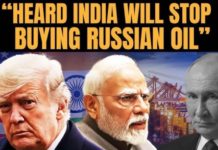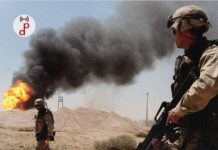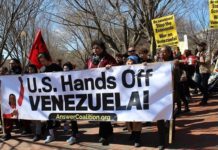By Bill Van Auken
“It takes courage for a society to address uncomfortable truths about the darker parts of its past. Confronting crimes committed by our own leaders… is essential to moving forward to building a peaceful and prosperous future in a country that respects the rights of all of its citizens.”
These were the words of President Barack Obama in praise of Mauricio Macri, Argentina’s new right-wing president, spoken at a ceremony held in Buenos Aires on March 24, the 40th anniversary of the military coup that brought to power the murderous US-backed dictatorship of Gen. Jorge Videla.
Obama could just as well have been speaking of the crimes committed by the United States against the people of Argentina and the rest of Latin America. But as the remainder of his remarks, aimed at covering up Washington’s crimes, made clear, his policies are directed not at building a society based on peace, prosperity and basic rights, but on defending the wealth and power of a rapacious capitalist oligarchy.
In his brief visit to the Parque de la Memoria in Buenos Aires, dedicated to the 30,000 Argentine workers, students and leftists who were murdered and “disappeared” under the junta, Obama was surrounded by a small army of Secret Service agents, watched over by snipers and helicopters, and kept a safe distance from the hundreds of thousands of Argentine workers and youth who took to the streets to mark the day. He was accompanied by Macri, whose basic policies are in continuity with those of the bygone junta.
What were the “uncomfortable truths” and “darker… past” Obama chose to confront in terms of Washington’s own role in the bloody events in Argentina? US officials, he said, had failed to “live up to the ideals that we stand for” and had been “slow to speak out for human rights.”
It is hard to imagine more mealymouthed and dishonest words from an American president.
If Washington was “slow to speak out for human rights” in Argentina in the 1970s it was because its political, military and intelligence officials were too busy preparing, directing and supporting both the 1976 coup and what followed—repression so savage that it amounted to a form of political genocide.
The generals who formed the fascistic junta in Argentina, like their counterparts who led military coups in Brazil, Uruguay and Chile during the same period, had been trained at the US military’s School of the Americas, then based in Panama. They were advised by large US military missions and CIA stations. The Pentagon and CIA provided direct training in the art of mass repression and the techniques of torture, which were practiced on over 100,000 Argentines.
The highest officials within the US government knew and approved of the mass repression. Previously secret State Department documents record an exchange between US Secretary of State Henry Kissinger and his assistant secretary of state for Latin America, William Rogers, just two days before Videla seized power. Rogers told Kissinger to expect “a good deal of blood in Argentina before too long.” The incoming junta, he said, was “going to have to come down not only on the terrorists but on the dissidents of trade unions and their parties.” Kissinger’s reply was to order full US support for the dictatorship.
It was not only the State Department, the CIA and the military that backed the coup and the subsequent bloodbath, but also the US corporations operating in Argentina. Companies like Ford Motors fingered militant workers to be killed by the security forces and allowed the junta’s secret police to set up clandestine detention and torture centers inside their plants.
No doubt, Obama would dismiss these events as ancient history, having nothing to do with the new “human rights” regime in Washington. Asked about the US role in backing the dictatorship, he told a press conference in Buenos Aires that he wasn’t interested in discussing “every activity of the United States in Latin America over the last hundred years.”
Far from having to discuss the distant past, Obama could, to start with, speak of the crimes of his own administration. In 2009, his administration backed a coup that ousted the elected president of Honduras, Manuel Zelaya, and brought in a government that has presided over the systematic murder of its opponents. And what of the regimes in Egypt and Saudi Arabia, key pillars of US policy in the Middle East and prime purchasers of American military hardware? The Egyptian regime of General Sisi has carried out mass detentions, torture and murder on a scale rivaling that of the Latin American dictatorships of 40 years ago, while the House of Saud beheads its critics.
In any event, the central purpose of Obama’s trip to Argentina was not to extol “human rights,” but to support the political and economic agenda of Macri, Argentina’s multimillionaire businessman-turned president, who was inaugurated last December.
Washington is banking on Macri’s ascent initiating a “turn to the right” in Latin America, as one government after another that was part of what was previously described as a “turn to the left” is thrown into deep crisis by the collapse of the commodities and emerging markets boom. The US is determined to exploit these crises to further its own increasingly belligerent confrontation with China, which has eclipsed the United States as South America’s leading trading partner.
The US president’s trip to Cuba and Argentina is a political manifestation of what leading Pentagon strategists have described as a “pivot to Latin America,” aimed at preventing US imperialism’s chief global rival from securing strategic advantage in what Washington has long regarded as its “own backyard.”
Obama praised Macri for having “moved rapidly on so many of the reforms that he promised.” What are the “reforms” that the US president finds so attractive?
Macri has presided over mass layoffs that are wiping out at least 50,000 jobs in the public sector and destroying another 75,000 in the private sector. He has scrapped currency controls, leading to a sudden 30 percent devaluation of the peso and a drastic cut in real wages for Argentine workers.
He has begun to implement sweeping cutbacks in education and health care, while scrapping electricity subsidies, leading to a 300 percent rate hike.
Meanwhile, he has slashed taxes affecting Argentina’s big landowners, a key constituency of the political right, and reached a multibillion-dollar deal with Wall Street “vulture” hedge funds, which will reap 10 to 15 times their original investment in defaulted Argentine debt they scooped up for pennies on the dollar.
Along with a sharp turn toward the strategic orbit of US imperialism in Latin America, Macri is pursuing a vast transfer of wealth from the masses of Argentine workers to the country’s ruling oligarchy and that of the United States. In its broad outlines, this is the same economic agenda the Videla dictatorship pursued by means of mass murder and torture. Macri has utilized a series of emergency decrees to impose his right-wing policies, although he has also counted on the backing of a section of the Peronists and the corporatist union bureaucracy.
Should Macri’s attacks on living standards provoke mass upheavals by Argentine workers, one can be certain the Argentine government will revive earlier methods of repression, and Barack Obama will quickly shed his pretense of concern for human rights.
